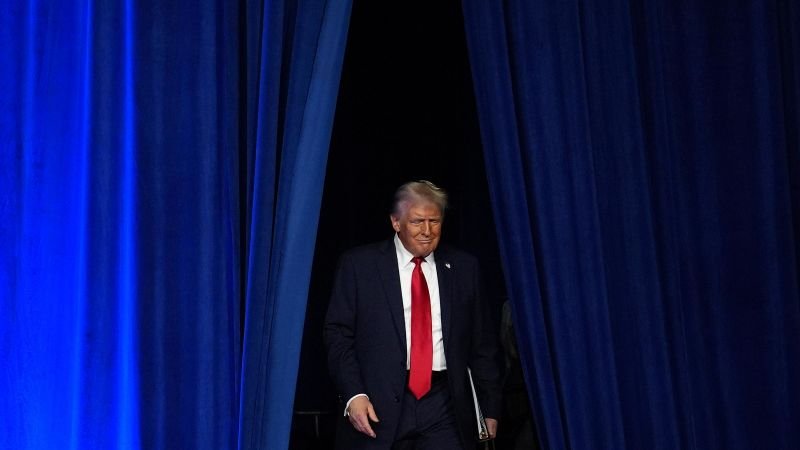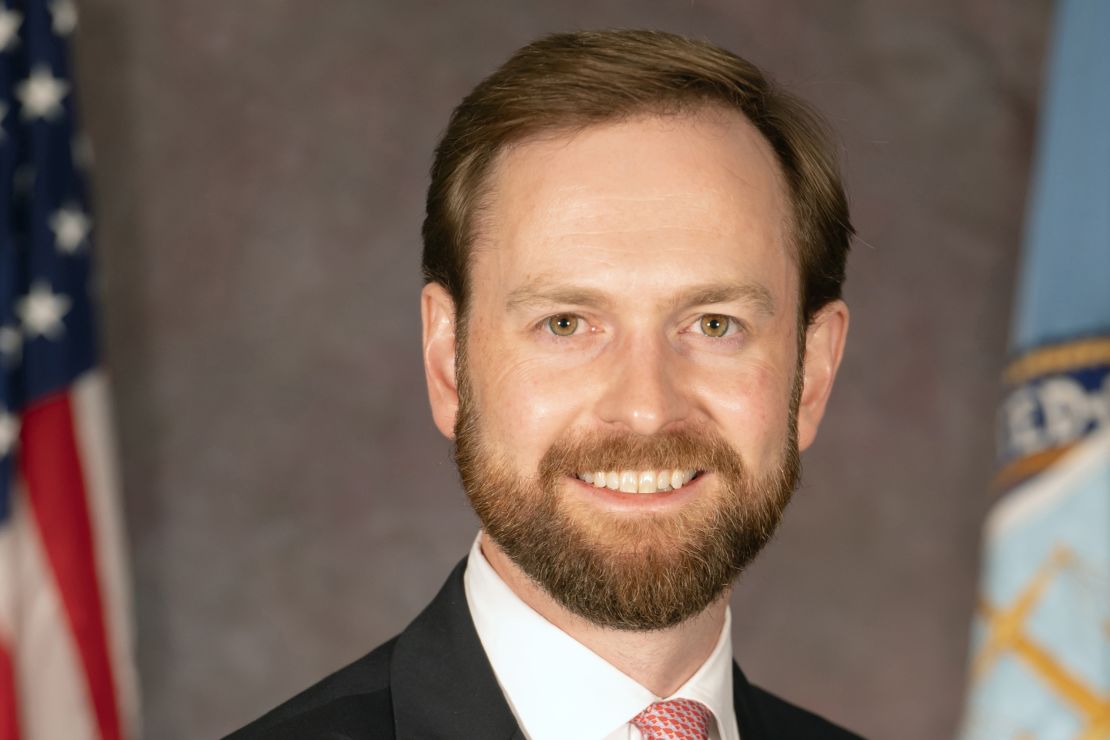Physical Address
304 North Cardinal St.
Dorchester Center, MA 02124
Physical Address
304 North Cardinal St.
Dorchester Center, MA 02124

Lina Khan It has pissed off corporate America.
He had one of the world’s most powerful government departments, the Federal Trade Commission, oppose major corporate mergers and issue new regulations aimed at giving workers and consumers more rights.
As a result, business leaders he wanted to be fired. And with the incoming Trump administration, they will get what they wanted.
On Tuesday, Donald Trump was elected president announced Andrew Ferguson, the current Republican commissioner of the FTC, will be promoted to chair of the agency. Trump said he will also nominate Mark Meador, a former antitrust staffer for Utah Republican Sen. Mike Lee, as FTC commissioner.
Trump’s decision will likely be welcome news to some businesses, but certainly not to all, and least of all to Big Tech, which Ferguson has criticized and, in the case of Google, taken to court while serving as Virginia’s attorney general.
Here’s where Ferguson’s record suggests the FTC may be under his leadership.
A former aide to Republican Senate leader Mitch McConnell, Ferguson has been a vocal critic of big monopolies. He has backed calls for a nationwide data privacy law and called concentration in the tech industry “the competition issue of our time.”
All of these things suggest alignment with the FTC’s current priorities, especially in recognizing the role technology companies play in the modern economy and the importance of vigorous enforcement of the nation’s antitrust laws.
They see their biggest differences with Khan as the power of the FTC itself, and whether it can force corporations to write regulation, or whether it would have to wait for a gridlocked Congress to pass legislation first.
Ferguson broke with Khan, for example, over the FTC’s groundbreaking nationwide rule, which prohibits clauses in employee contracts that prevent employees from leaving an employer and working for a competitor. The 2024 rule, which immediately drew objections from employers who called it government power, was not within the jurisdiction of the FTC’s creation, Ferguson said. he wrote in a dissent.
“We are not a legislature; We are an administrative agency with only the power that Congress has statutorily granted us,” Ferguson wrote.
The disagreement reflects a deep and longstanding disagreement between Democrats and Republicans over the scope of the FTC Act – the letter from Congress that defines the commission’s powers. In that situation, Ferguson argued that the “best interpretation” of the law only gave the FTC the power to make rules governing itself, not private businesses.
With Ferguson at the helm, the FTC appears poised to continue prosecuting antitrust and consumer protection cases, including an antitrust case. break the goal He was introduced in the first Trump administration and a the couple of the cases Against Amazon
Underscoring the likelihood that Ferguson will be tough on technology is his role as attorney general in Virginia, where he, the Department of Justice and several other states. He sued Google For monopolizing the digital ad tech market. The big case targeted the $31 billion part of Google’s business where website publishers match advertisers, and it went to trial this fall. A decision could be made within weeks.
But, critically, Ferguson is likely to move away from wide areas of regulation that Khan defended him.
It’s also clear that Ferguson wants to use the nation’s antitrust laws as a tool to push social media platforms to promote conservative speech even more than they do.
It’s unclear how far that effort might go in court, but Ferguson announced his intentions in congressional testimony last year and in a statement after Trump’s announcement this week.

“At the FTC, we will end Big Tech’s vendetta against competition and free speech,” Ferguson said. Posted in Xon tuesday Major tech platforms have insisted they don’t censor speech based on political viewpoint, and some companies have gone out of their way to both accommodate and even promoting right-wing viewsbut conservatives have long accused him of anti-conservative bias, yet resulting in weaker platform enforcement against electoral lies and disinformation.
Ferguson outlined the broad strokes of the connection between antitrust and political speech during a Senate confirmation hearing last year.
The consolidation of the technology makes it easier for governments to pressure social media companies to take down content, said Ferguson, R-Missouri Sen. Eric Schmitt. Schmitt, as state attorney general in 2022, led high level case In the last term it arose before the Supreme Court regarding the alleged censorship of social networks.
The case focused on the Biden administration’s communications with social media companies that pressured them to remove Covid-19 and election disinformation, which Missouri, Louisiana and some private parties argued were a First Amendment attack on conservative speech.
“It’s much easier for the government to control the behavior of every citizen if it has to coerce a couple of market participants,” Ferguson told Schmitt. “This is why the aggregation of private power is so dangerous, because if the government coordinates with a few actors, it is much easier to control the rest. And I think the lawsuit that your state brought showed how this can work in real time.”
at the beginning of the year The Supreme Court decided The White House said it can continue to report what it believes to be misinformation on social media platforms for now while the case continues in the lower courts. At oral argumentThe justices expressed deep skepticism about the states’ legal arguments, saying they could lead to unintended consequences, such as the government’s inability to alert social media platforms about violent threats against public officials.
Ferguson has weighed in on social media talk in other ways, too. During his tenure as Virginia’s attorney general, along with officials representing 17 other states, presented in support Montana’s controversial law Trying to ban TikTok on personal devices throughout the state Trump has said he would “save” TikTok from a nationwide ban, though it’s unclear how he might do it.
Ferguson’s track record suggests that while he and Khan share some skepticism about technology, the incoming FTC chair is motivated by conservative complaints about online platforms in a way that differs from Khan, whose concern with technology has focused primarily on economic outcomes. .
In other ways, however, Ferguson and Khan seem to have something in common. In an interview with the Mercatus Center, a libertarian think tank, in June, Ferguson defended some of Khan’s FTC-led initiatives.
For example, he pointed out how the US government’s ambitious update fusion guidelines — which set expectations that merger regulators might find anticompetitive — did not depart from existing court precedent.
While he may agree on the edges of some of the new guidelines, Ferguson said, he doesn’t think it’s productive to drop the guidelines with every administration change.
“I think a lot of what’s in the guidelines is actually a rehash of things from previous guidelines and cases, and in that sense it kind of promotes predictability,” he said. “Other things in the drives, I think, are expanding a little bit.”
“Regulations will be useless to everyone if everyone thinks they embody the very particular preferences of a particular party,” he added.
In the interview, Ferguson emphasized his deep belief in the separation of powers, along with the guardrails set up to protect it. Congress makes laws; enforces administrative states; and the judges decide whether the enforcement is fair, after reading the law closely.
In this respect, Ferguson presents himself as an institutionalist, not at all like the man who is going to give a big promotion.